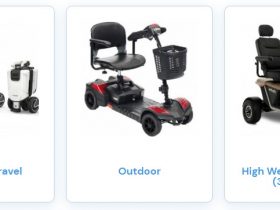
Are you ready to dive into the world of bubble tea and turn your passion for this trendy beverage into a thriving business? If so, you’re in the right place! Opening a bubble tea shop is not only an exciting venture but also a potentially lucrative one. But before you embark on this entrepreneurial journey, it’s essential to know how much to open a boba shop and bring your dream shop to life. In this blog post, we’ll break down all the necessary expenses and provide valuable insights on starting a bubble tea shop in 2023.
So grab your favorite cup of boba, sit back, and let’s discover how much to open a boba shop for bubble tea enthusiasts!
What are the Costs to Start a Bubble Tea Shop?
Starting a bubble tea shop requires careful planning and financial commitment. Key expenses how much to open a boba shop include :
- Location: Rent prices vary based on location, foot traffic, and accessibility.
- Equipment and Supplies: Costs for blenders, tea machines, tapioca pearls, flavorings, cups, straws, and signage can be substantial but contribute to operational efficiency.
- Licensing: Obtain permits or licenses from local authorities, with associated fees.
- Marketing: Allocate funds for marketing strategies like social media advertising and influencer collaborations to boost awareness.
- Working Capital: Maintain sufficient working capital for initial inventory and daily operational expenses until the business becomes profitable.
How Can You Reduce Your Business Expenses?
Effectively managing business expenses is important for a successful bubble tea shop. To achieve long-term profitability and success, consider these strategies:
- Negotiate with Suppliers: Negotiate with suppliers to secure favorable pricing, explore bulk purchases, and form partnerships for volume discounts.
- Prioritize Energy Efficiency: Reduce utility costs by adopting energy-efficient practices like LED lighting, programmable thermostats, and proper insulation.
- Optimize Staffing: Evaluate staffing needs to avoid overstaffing, cross-train employees for multitasking, and reduce the need for additional staff.
- Streamline Inventory: Monitor inventory closely with efficient software tools, order only what’s necessary, and avoid excess stock.
- Cost-Effective Marketing: Use cost-effective marketing such as social media promotions, influencer collaborations, and community partnerships rather than relying solely on traditional advertising.
Implementing these measures and tailoring solutions to your shop’s needs will lower expenses while maintaining quality, ultimately maximizing profitability and long-term success.
How to Get Financing for Your Bubble Tea Business
Securing financing for your bubble tea business is a important step in making your dream a reality. There are various options available to obtain the necessary funds:
- Traditional Lenders: Approach banks or credit unions, which often have small business loan programs with favorable interest rates. Be prepared with a strong business plan and collateral.
- Investors: Seek support from investors, including family, friends, or angel investors who specialize in startups. Make a compelling case for your bubble tea shop’s profitability.
- Crowdfunding: Utilize platforms like Kickstarter or Indiegogo to invite contributions from a global audience in exchange for rewards or early access perks.
- Government and Nonprofit Grants: Explore grants or low-interest loans offered by government agencies and nonprofit organizations to stimulate local economies.
When seeking financing, consider not only the amount needed but also its long-term impact on your financial health. Carefully evaluate repayment terms to ensure you can comfortably meet monthly obligations.
Supplies and Equipment Necessary to Open a Bubble Tea Shop
Securing the right supplies and equipment is essential when opening a bubble tea shop to ensure efficient service and the creation of delightful beverages that keep customers returning. Key considerations include:
- Quality Tea and Milk: Acquire top-quality tea leaves or tea powders in various flavors and offer a variety of milk options to cater to different preferences.
- Tapioca Pearls (Boba): Source high-quality tapioca pearls that cook evenly and maintain a consistent texture, a defining characteristic of bubble tea.
- Blenders or Shakers: Use reliable blenders or shakers for thorough ingredient mixing to achieve a smooth consistency or an appealing frothy appearance.
- Strainers: Employ strainers to remove impurities from freshly brewed teas or liquid mixtures before serving customers.
- Sealing Machines: Invest in dependable sealing machines to securely seal cups with plastic film or lids, ensuring spill-free transport and easy takeaway options.
- Cup Holders and Straw Dispensers: Consider the convenience of sturdy cup holders and efficient straw dispensers to enhance the customer experience, particularly for those enjoying their bubble tea on the go.
Having these supplies and equipment readily available not only ensures seamless operations but also projects a professional image that attracts customers seeking an authentic and satisfying bubble tea experience.
Best Practices for Operating a Successful Bubble Tea Shop
- Prioritize Excellence: Achieving success with your bubble tea shop requires an unwavering commitment to excellence throughout every aspect of your operation. This encompasses using premium ingredients in your beverages and providing exceptional customer service.
- Innovate with Distinctive Flavors: Differentiating your shop from competitors involves creating unique and delectable flavor combinations exclusive to your establishment. Experiment with a variety of ingredients and tastes to craft signature drinks that entice customers to return.
- Highlight Visual Appeal: Presentation plays a pivotal role in drawing in customers. Invest in eye-catching cups, straws, and toppings to enhance the visual allure of your bubble teas. Remember that visually appealing beverages often gain popularity on social media.
- Empower Customization: Offer customers the freedom to personalize their bubble teas to their liking. Providing customization options empowers them to actively participate in the creation process, ensuring they receive precisely what they desire.
- Foster a Welcoming Atmosphere: Create a warm and inviting ambiance within your shop through comfortable seating, enjoyable music, and a team of friendly, attentive staff who genuinely prioritize exceptional service.
- Leverage Social Media Marketing: Harness the power of social media platforms like Instagram and Facebook to effectively market your bubble tea shop. Share captivating images of your drinks, engage with followers through contests and giveaways, and actively encourage user-generated content.
- Uphold Stringent Hygiene Standards: Maintain a high level of cleanliness and hygiene throughout your establishment by regularly sanitizing equipment, adhering to proper food handling practices, and rigorously enforcing hygiene protocols.
- Pursue Ongoing Enhancement: Actively seek feedback from customers regarding their experiences at your bubble tea shop. This valuable input provides insights into areas for improvement, enabling you to adapt and surpass competitors.
By integrating these best practices into your daily operations, you’ll elevate customer satisfaction, fostering repeat business and word-of-mouth recommendations, ultimately paving the path to success for your bubble tea shop. Continue to strive for excellence and remain adaptable in response to evolving trends and customer preferences.
Conclusion
In closing, it is clear that aspiring boba shop owners need to carefully evaluate the various expenses associated with opening a store in 2023. Factors such as location selection, lease agreements, equipment acquisition, interior design, and staffing must be taken into account. Furthermore, effective marketing strategies should be implemented to draw customers right from the start.
It goes without saying that success in this competitive market demands creative strategic planning and careful financial management. Ultimately, opening a boba shop requires not only money but also time, enthusiasm, and dedication if entrepreneurs are to succeed.











